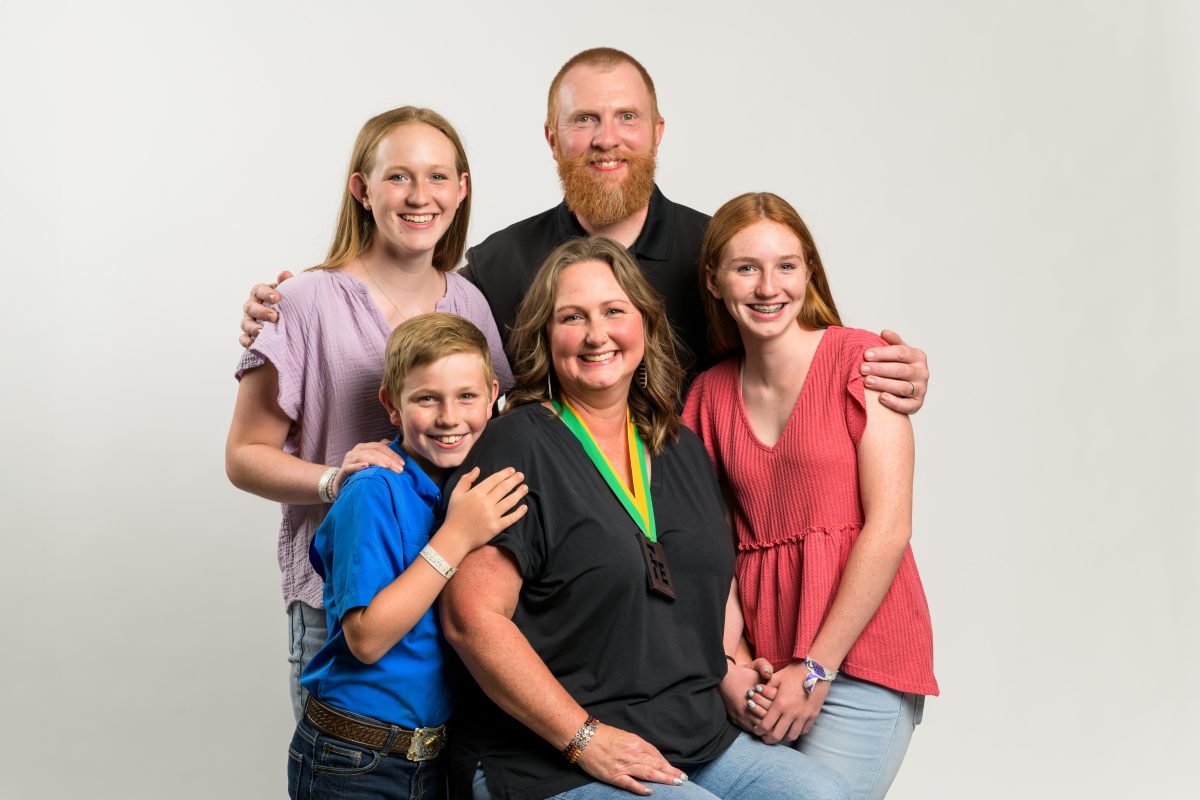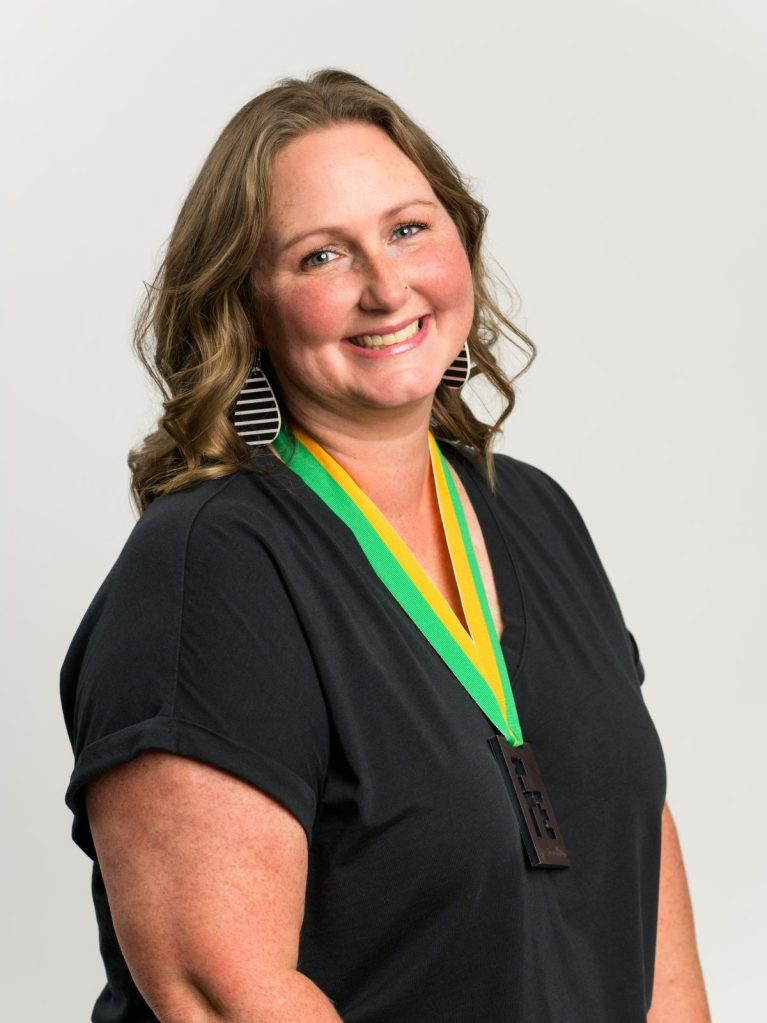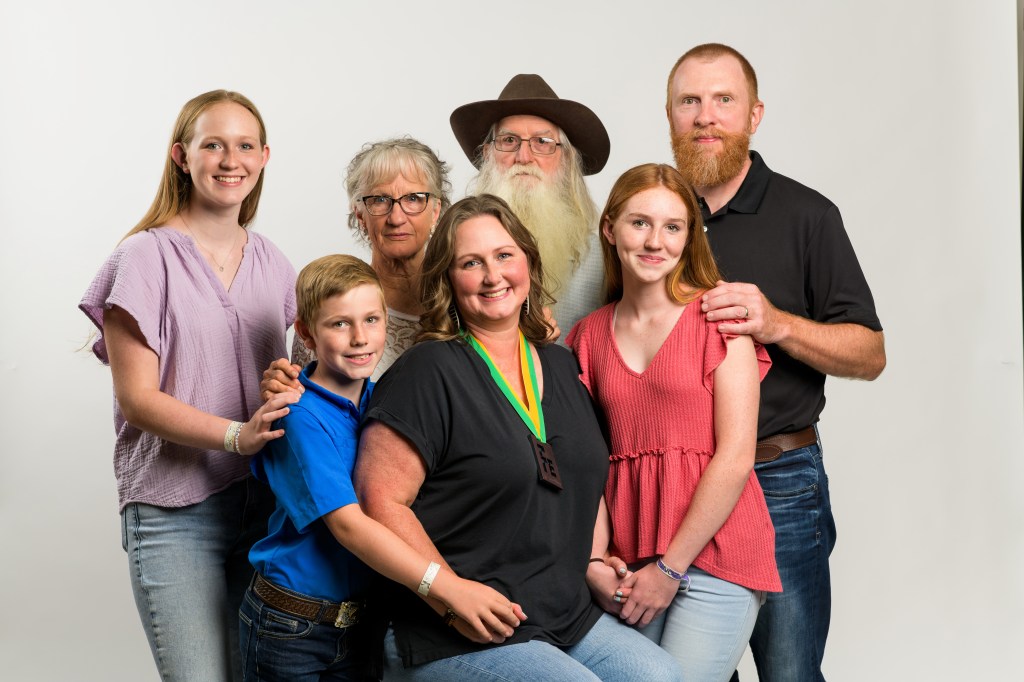
Becki Quinn
A cancer diagnosis often is a shocking and frightening experience for people, especially for anyone in their 30s. But Becki Quinn did not view things quite that way in 2020 when, at age 37, a lung biopsy revealed that she had metastatic melanoma.
To begin with, this already was Quinn’s third bout with cancer, so she knew what was happening. In addition, Quinn had worked as a nurse at UAB since 2008, giving her a firm understanding of health issues and potential treatments.
“It’s always an interesting interaction when your patient is in the medical field,” says UAB oncologist Maya Khalil, M.D., who helped treat Quinn. “You can use more medical terms and know that she understands all the jargon. Plus, being a healthcare worker, she realized the seriousness of the situation and what needed to be done.” As a result, when Quinn was given the option of enrolling in a clinical trial examining the effectiveness of an immunotherapy compared to a standard treatment with medication, she quickly agreed to participate.

“I was completely fine with it,” she says. “Whatever needed to be done, whatever they thought was the best route to take, was OK with me.”
Quinn’s treatment involved the immunotherapy, and she endured some significant side effects – including inflammation in her pancreases – before the infusions were halted after less than a year. That proved to be long enough, however, as the cancer rapidly decreased in size, and Quinn’s scans have been clear since 2022.
“Even though she had those side effects,” Khalil says, “she is a success story because she still had so much benefit for what could have been a fatal disease.”
Quinn agrees, which is why she is not troubled about the one remaining side effect involving her adrenal glands. “I still have to take a low dose of steroids because of that,” Quinn says. “But that’s OK. I’m alive.”
Khalil says Quinn displayed that same type of positive attitude throughout her treatment. Despite experiencing occasional fatigue and other issues, Quinn consistently worked her regularly shifts at the UAB Women & Infants Center.

“She was a trooper the entire time,” Khalil says. “I’d sometimes run into her in the hallways of the hospital or at the cafeteria, and she was always in good spirits despite everything that was happening to her on the medical side.”
That is because of the other reason Quinn says she refused to be fearful or despondent following her cancer diagnosis – her faith.
“I’m a Christian, and I never doubted I was going to make it through this,” says Quinn, who is married with three children. “I have a family, and I was determined that this was not going to beat me. There was never any doubt in my mind about that through the entire time.”


